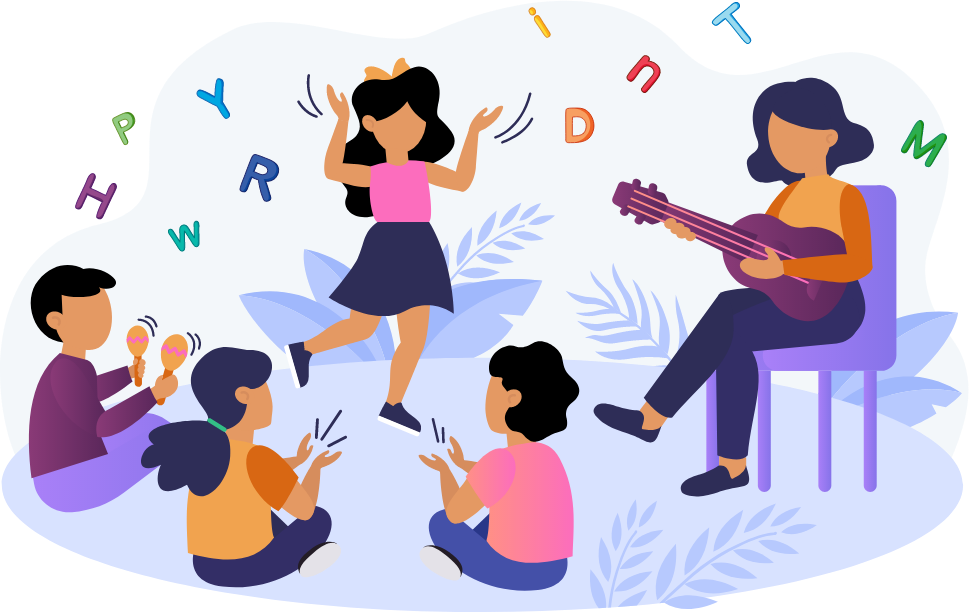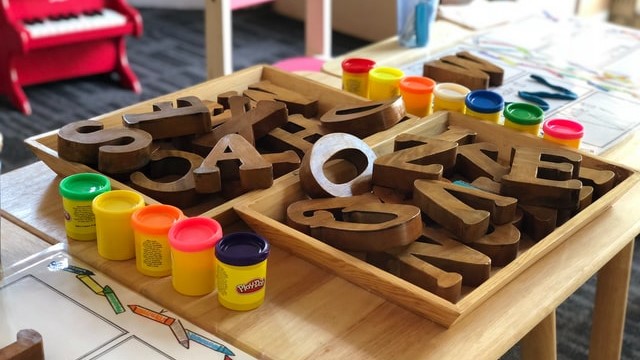

Pre-school education deals with the most delicate age of a child's learning phase - Early Childhood Education is not just a stepping stone for primary school, but also an experience and stimulus to develop skills and intelligence for life. This 17 hours program aims at expanding the horizon of an educator's learning compass, permitting requisite development of one's teaching skills. The training makes the educator's capable of conveying their knowledge more effectively, including Important elements of student handling from different approaches to importance of play.
TRAINING OVERVIEW

Facilitator is one of the role of teacher who does not operate under the traditional concept of teaching, but rather is meant to guide and assist students in learning for themselves - picking apart ideas, forming their own thoughts about them, and owning material through self-exploration and dialogue.
PDF DOCUMENTS
Some of the greatest minds in the history contributed a few of the best-known child developmental theories. These theories focus on a more narrow aspect of development. Many of them formed from classic theories that helped influence modern child psychology. Understanding these developing theories is important to helping children in developing to their fullest potential.
PDF DOCUMENTS
These milestones are behaviors that emerge over time, forming the building blocks for growth and continued learning. By looking at the different milestones, parents, doctors, and teachers are better able to understand how children typically develop and watch for any potential problems.
PDF DOCUMENTS
Scope and sequence refers to the plans intended to support students’ learning. Scope describes the areas of development addressed in the curriculum while sequence refers to plans and content to support students’ learning. A scope and sequence can also help you plan your year and schedule enriching activities like field trips and hands-on projects.
PDF DOCUMENTS
Learn about different classroom resources and stratagies
SHOW MORE

Classroom design and learning go hand it hand. The teacher’s task is to ensure that learning is effective, one major way to achieve this is the use of appropriate teaching methods. A creative classroom can help students operate according to their strengths. And variety in learning keeps students engaged.
PDF DOCUMENTS
It is difficult for learning to take place in chaotic environments. Teachers should spend time actually teaching and practicing the classroom procedures throughout the first few days of school. Investing some time at the beginning of the school year on procedures can also help prevent some negative behaviors later on.
PDF DOCUMENTS
Good lesson planning is essential to the process of teaching and learning. It outlines what students will learn during each class period, how the lesson will be taught and how student progress will be measured. Lesson plans are a core component of teaching, and part of a broader series of classroom organization and management tools.
PDF DOCUMENTS
Assessment has an important role in education and it has a critical role in the teaching process. Assessment is more than grading. It’s about measuring the progress of student learning. Well designed assessment has numerous benefits aside from the obvious one of providing a measure of students' progress as it can be a means to engage students with their learning.
PDF DOCUMENTS
Effective communication skills are really important for a teacher in transmitting of education, classroom management and interaction with students in the class. All aspects of communication, including non-verbal communication, attentive listening, and communicating in groups have a crucial part in effective communication with learners.
PDF DOCUMENTS
In an inclusive classroom, teachers work together to meet the special needs of students. Teachers must examine students’ strengths, weaknesses, interests, and communication methods in the classroom. Communication with parents is also essential for inclusive classroom success.
PDF DOCUMENTS
Play is critical to the development of healthy, well-rounded, confident children. Play's contribution to development builds not only healthy bodies, but also healthy children: physically, emotionally, socially, and cognitively. Play is the primary process through which children experience and internalize the world around them.
PDF DOCUMENTS